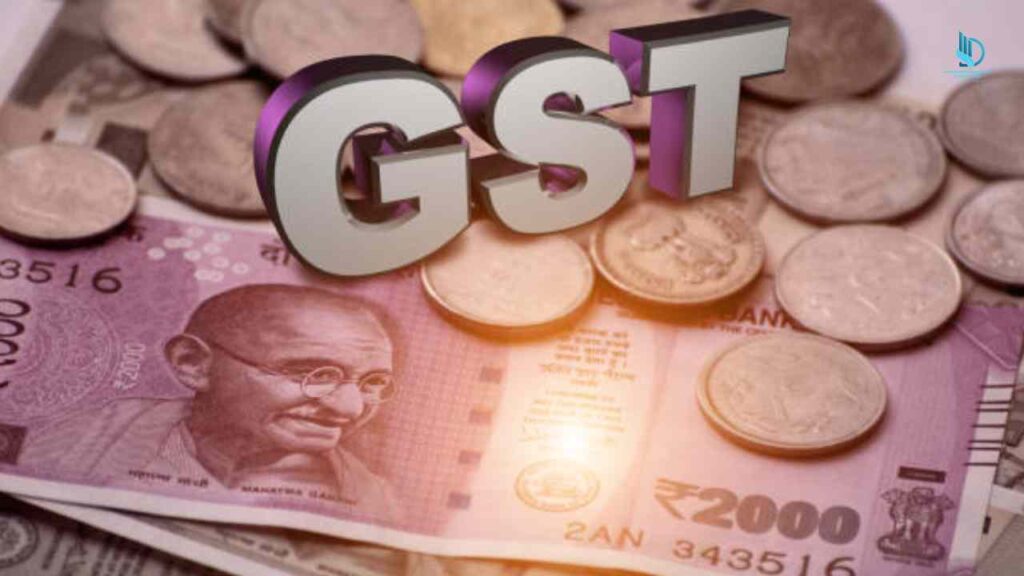In today’s fast-paced digital landscape, businesses are always on the lookout for effective marketing strategies. As digital marketing services gain traction, the importance of understanding the Goods and Services Tax (GST) on these services cannot be overstated. With the rapid evolution of technology and consumer behavior, it’s crucial to keep up with the changing tax regulations.
If you’re running a digital marketing agency or utilizing digital marketing services, you might be asking yourself: What’s the deal with GST on digital marketing services? Well, buckle up! We’re about to dive into the nitty-gritty of GST and its implications for digital marketing, particularly through the lens of Digitalasb Technologies.
What is GST and Why Should You Care?
A Quick Overview of GST
Goods and Services Tax (GST) is a comprehensive tax levied on the supply of goods and services. It replaced several indirect taxes that were previously in place, making tax compliance simpler for businesses. In India, GST was introduced on July 1, 2017, and it applies to the sale of goods and services alike.
- GST on digital marketing services in India
- GST implications for digital marketing agencies
- GST on social media marketing
- GST on SEO services
- GST on PPC advertising
- GST on content marketing
Why Should You Care?
If you’re a business owner, understanding GST is vital! Here’s why:
- Legal Compliance: Staying compliant with GST regulations can save you from hefty fines and legal troubles.
- Cost Management: Knowing how GST works can help you manage costs more effectively.
- Improved Profit Margins: A clear understanding of GST can help you price your services competitively, ensuring better profit margins.
GST on Digital Marketing Services
So, what’s the story with GST on digital marketing services? Digital marketing encompasses a wide range of services—search engine optimization (SEO), social media marketing (SMM), content creation, and more. All these services fall under the purview of GST. Know More – Digital Marketing in Hindi
Social Media Marketing:
GST on Advertising: GST is applicable to social media advertising expenses incurred by businesses. This includes costs associated with platforms like Facebook, Instagram, and LinkedIn. GST on Management and Content Creation: GST is also levied on fees charged for social media account management and content creation services.
Search Engine Optimization (SEO):
GST on On-Page and Off-Page Optimization: GST is applicable to services related to optimizing websites for search engines, such as keyword research, on-page optimization, and link building.
Pay-Per-Click (PPC) Advertising:
GST on Ad Spend and Management: GST is levied on the cost of PPC advertising campaigns, including the ad spend and management fees charged by digital marketing agencies. Also Read: – Marketing Goals for Facebook Ads
Content Marketing:
GST on Content Creation and Distribution: GST is applicable to fees charged for content creation, editing, and distribution services, such as blog posts, articles, and videos.
Other Services:
GST on Web Design and Analytics: GST is generally applicable to services related to web design and analytics, such as website development and data analysis.
What Rate Applies?
Currently, the GST rate on digital marketing services is 18%. This rate applies to all forms of digital marketing, whether you’re hiring an agency like Digitalasb Technologies or using freelance services. However, it’s essential to understand that this is just the base rate; the actual tax you might pay could be influenced by various factors such as the nature of the service and the state in which your business operates.
Record Keeping and Compliance
To ensure GST compliance, digital marketing businesses must maintain accurate records of their transactions, including invoices, purchase bills, and GST returns. It’s essential to file GST returns on a timely basis and pay the applicable taxes. Failure to comply with GST regulations can lead to penalties and interest charges. Also Check – POEM Framework in Digital Marketing
The Importance of GST Registration
Who Needs to Register?
Not all businesses need to register for GST. If your annual turnover exceeds ₹20 lakhs (₹10 lakhs for special category states), you must register. This registration helps you avail of input tax credits, making it financially beneficial.
Benefits of GST Registration
- Input Tax Credit (ITC): You can claim a credit for the GST paid on your business purchases, reducing your tax burden.
- Legal Recognition: Registered businesses are recognized as legitimate entities, boosting consumer trust.
- Competitive Advantage: Being GST compliant can give you an edge over competitors who are not.
How Digitalasb Technologies Can Help
If you’re feeling overwhelmed by the GST process, don’t sweat it! Digitalasb offers comprehensive digital marketing services and can assist you in navigating GST compliance. From helping you understand applicable tax rates to ensuring you’re registered, we’ve got your back! Read More: – Principles of Digital Marketing
Navigating GST Compliance for Digital Marketing Services
The Invoicing Process
When dealing with GST, invoicing is crucial. Every transaction must be documented properly to ensure compliance. Here are the steps you should follow:
- Generate GST Compliant Invoices: Make sure your invoices include all necessary details, such as GSTIN (Goods and Services Tax Identification Number), HSN (Harmonized System of Nomenclature) codes, and the applicable GST rate.
- Maintain Records: Keep a detailed record of all transactions to facilitate easier filing of GST returns.
Filing GST Returns
Filing your GST returns on time is essential! Missing deadlines can lead to penalties. Here’s a simplified process:
- Collect Data: Gather all the necessary data from your invoices.
- Choose the Right Form: Depending on your business model, you may need to file different forms (GSTR-1, GSTR-3B, etc.).
- Submit on Time: Make sure to file your returns before the due date!
Common Mistakes to Avoid
- Not Keeping Accurate Records: This can lead to complications during tax filing.
- Ignoring Input Tax Credits: Many businesses miss out on ITC due to lack of knowledge.
- Late Filings: Always adhere to deadlines to avoid penalties.
Also Check – Skill India Digital Marketing
Frequently Asked Questions
What happens if I don’t register for GST?
If your turnover exceeds the limit and you fail to register, you could face penalties and legal consequences. It’s best to get registered to avoid any hassles!
Can I claim input tax credit for digital marketing services?
Absolutely! If you’re registered for GST and using these services for business purposes, you can claim input tax credit.
How does GST impact pricing for digital marketing services?
The introduction of GST means that the tax is included in the pricing of services. You may need to adjust your pricing strategy to remain competitive.
Is GST applicable to international clients?
For services provided to international clients, the applicable tax is zero-rated. This means you won’t have to charge GST, but you will need to maintain proper documentation.
How can Digitalasb Technologies assist in GST compliance?
Digitalasb provides tailored digital marketing solutions and offer guidance on GST compliance, ensuring that your business stays on the right track!
Conclusion
In the ever-evolving digital landscape, keeping up with the regulations surrounding GST on digital marketing services is crucial for every business. Whether you’re a small startup or a well-established enterprise, understanding how GST works can save you time, money, and a lot of headaches! Don’t hesitate to reach out to Digitalasb Technologies for expert guidance and support. With our knowledge and experience, we can help you navigate this complex tax landscape while you focus on what you do best—growing your business!
So, get ahead of the curve and embrace the digital marketing revolution, one compliant step at a time! Let’s turn those GST worries into a thing of the past! If you have any questions or need assistance, feel free to reach out. After all, we’re here to help!




